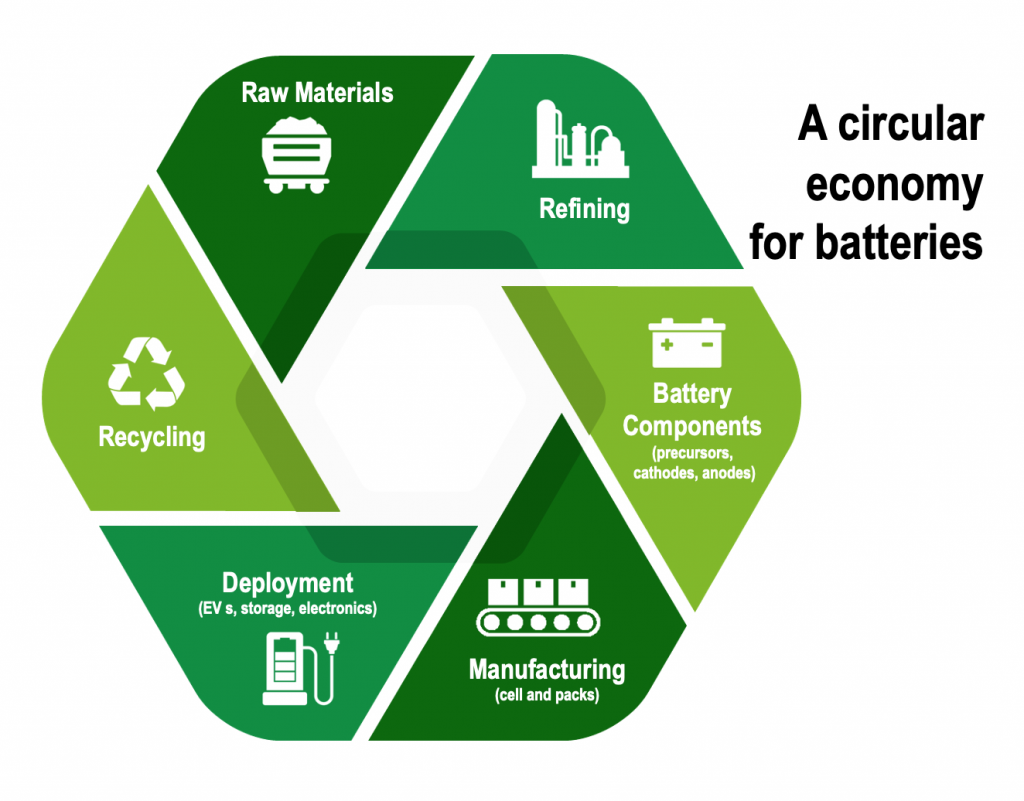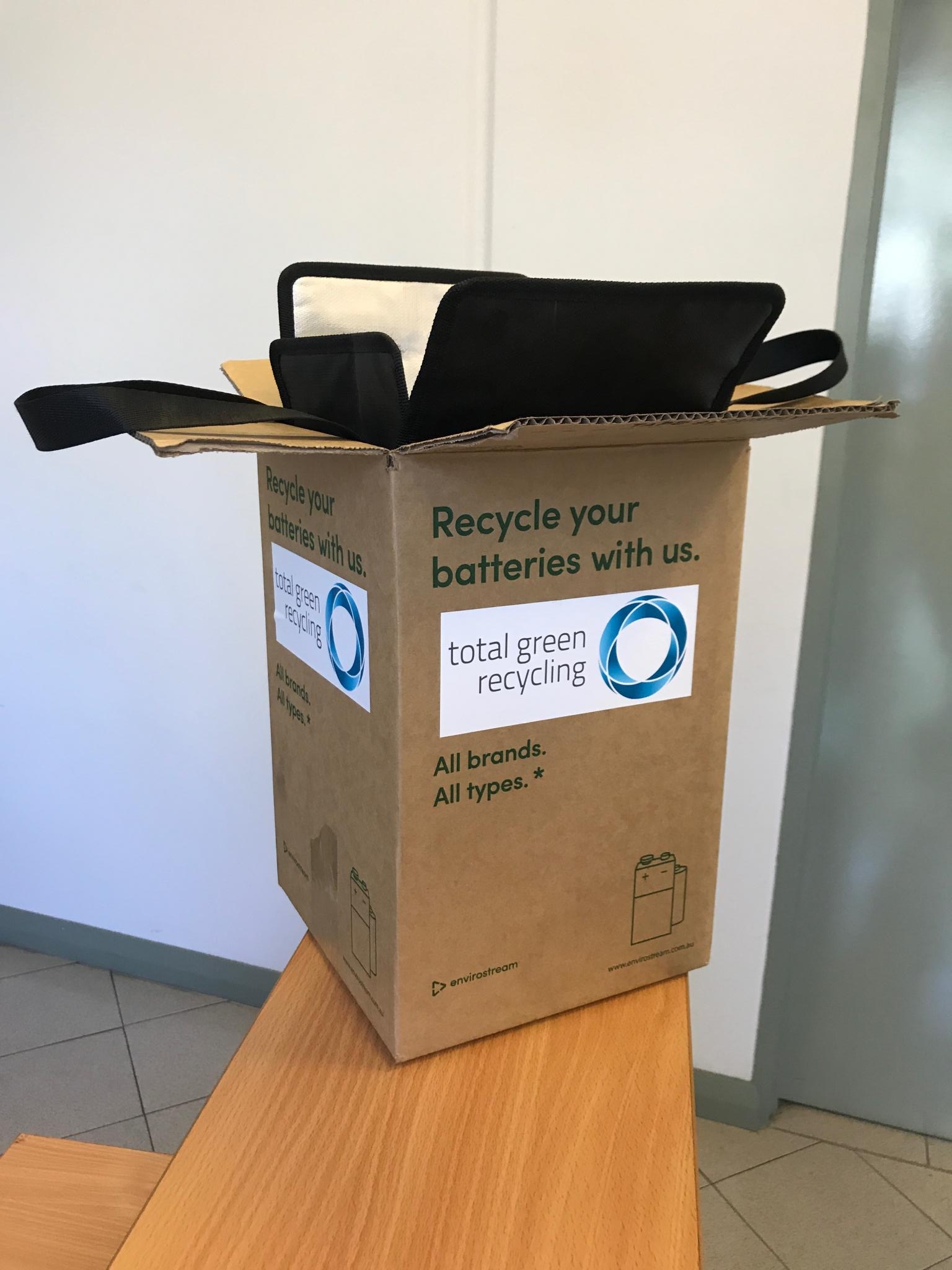When I think of a battery, a double AA pops into my mind. However these days batteries power a lot more than our TV remote and our walkman. They’re powering our homes, our cars, our power tools, our computers and even our headphones. The transportation, construction and mining industries are harnessing the power of batteries too. Batteries are a supercharged step on our journey towards a carbon-free future. Batteries are lowering emissions through storing the power of the sun and wind.

The industry is growing rapidly, and as the demand for batteries increases, a significant flow of battery waste is growing too.
While batteries might be our future, their handling at end-of-life remains an issue in the present.
If batteries are the key to harnessing sustainable energy, their disposal needs to be just as sustainable if we want to close the circle and ensure a liveable future. Approximately 98% of lead acid batteries are recycled, but they’ve been around since 1859, so there’s been plenty of time to perfect that system. Lithium batteries were only commercialised in the 1990’s, and only 10% of them are recycled in Australia, with the rest still ending up in landfill, despite their volatility and the valuable commodities they contain.
Why don’t we bin our batteries?
While many Australians know we’re not meant to bin our batteries, it’s not yet common knowledge as to why.
Every time we throw something into the landfill, we’re throwing away value. The circular economy works on the principle of eradicating waste, by re-using, redirecting and recycling end of life products.

Throwing away a battery is no different. Sure it might not hold charge anymore, but it still holds valuable materials such as lithium, cobalt, nickel, silver oxide and zinc. Why are we throwing away finite resources that require so much effort to get out of the earth? CSIRO estimated the lost value from unrecovered Lithium Ion batteries could be as high as $3.1 billion.
We’re not only throwing value in the bin, we’re binning hazardous materials that can impact our health and environment. Those same metals and chemicals that are so valuable and useful, are also dangerous if they leak out of landfill and contaminate our ground soil which causes lasting health issues.For example, Hydrofluoric acid is present in Lithium batteries, which is one of the most corrosive compounds known to exist.
And finally and most importantly, they’re a fire risk. Batteries can heat up under pressure and start fires. We’ve all seen the videos on the news of general waste trucks going up in flames, this is almost always caused by a battery hiding in a bin. It’s not only dangerous for our waste management workers, but it’s just adding to the pollution. We know not to burn plastic, and our other household waste, yet when a waste management facility goes up in flames thanks to a battery that snuck inside, that’s a lot of dangerous chemicals being released back into the environment.
Supercharged stewardship solutions
Total Green Recycling is a member of the Battery Stewardship Council, which will be launching its battery stewardship scheme in 2022.
Product stewardship is the responsible management of a product’s life, from design through to end of life.

It makes sure the cost of safe disposal and recycling is built into the price of the product, which is passed on to the consumer through the pricing of that product. Most Australians are happy to pay a small fee to ensure safe and environmentally friendly waste management of their products. The amount of batteries that end up in landfill today comes down to education and lack of convenient disposal solutions for the consumer. Total Green Recycling as part of the Battery Stewardship Council, is pioneering this movement in Western Australia and is very excited to be part of the solution.

Battery boxes not bins
Total Green Recycling offers safe collection options for offices and companies, with our new fire safe battery boxes.
It can stay in your office until it’s full and we can collect it and ensure safe and environmentally friendly disposal and recycling solutions. Our fire-safe battery boxes are rated to hold up to 15KG of household batteries and are prepaid including delivery and collection. Contact us about organising a battery box for your company.
Choose to reuse
Approximately 70% of batteries sold each year in Australia are single use. By choosing rechargeable batteries over single use batteries we can minimise the environmental impact by up to 32 times.
Education and infrastructure
Education and a growth in infrastructure is the key to minimising the impact of the hazards and loss of value from this growing waste stream. With organisations like Australian Battery Recycling Initiative (ABRI) and Future Battery Industries Cooperative Research Centre (FBI CRC) and the Battery Stewardship Council, we have the ability to reduce the environmental impact of materials production, save billions of dollars worth of precious metals from landfill and most importantly, prevent costly and environmentally devastating fires within our waste and recycling industry.
